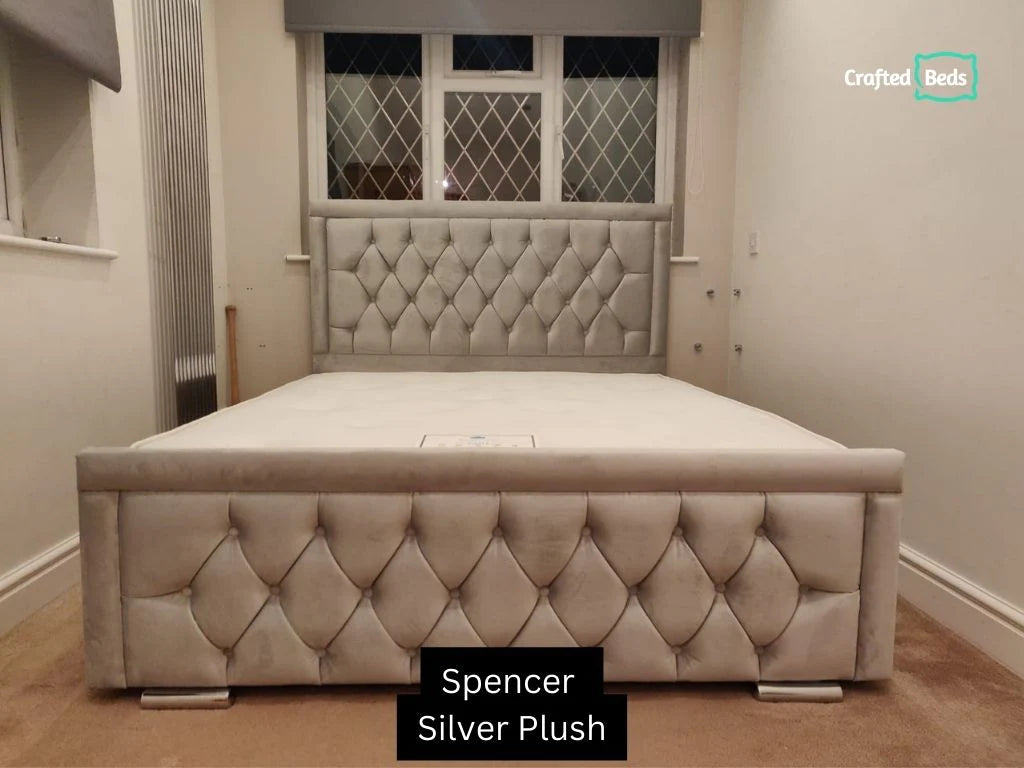Are you having trouble falling asleep or staying awake during the day? If you answered yes, you might suffer from delayed sleep-wake disorder (DSWD). This condition affects millions of adults every year.
The delayed sleep-wake disorder is characterized by difficulty sleeping at night and waking up too early. The symptoms usually last for several weeks before they resolve themselves.
A typical shift in the internal clock during puberty may cause delayed sleep-wake disorder (DSWPD). There are many treatment options.
This article provides a comprehensive guide to DSWD. It explains the causes, risk factors, diagnosis, treatment options, and prevention strategies.
What Is Delayed Sleep-Wake Disorder (Dswpd)?
Delayed sleep-wake disorder (DSWPD) is when sleep is delayed for two to more hours beyond what is socially acceptable. The delay in falling asleep can cause difficulty getting up when you want.
DSWPD can cause an individual to fall asleep after 10:00 p.m. and wake up at 6:30 a.m.
DSWPD affects many children and teens. They are often described as night owls and feel most alert and productive in the evening and night.
The sleep log would record their sleep patterns during school/work weeks (with few to no wake-ups at night) and long sleep-ins on weekends (late morning to mid-afternoon wake-up times).

Risk Groups For Delayed Sleep-Wake Phase Syndrome
Delayed sleep-wake phase disorder is more common in young males and middle-aged females. Adolescents are most affected by this condition. Melatonin production starts earlier in adolescents than in adults.
It causes delayed sleep-wake phase disorder. People who suffer from DSPD often experience depression.
Adults with DSPD may also be diagnosed with ADHD. Delayed Sleep Phase Disorder (DSPD) is most common in young people.
Adolescents have delayed melatonin production, which causes them to be awake later than usual. It leads to problems sleeping and staying up late.
People who suffer from Delayed Sleep Phase Disorder (DSPD) often experience depression.
Many people with DSPD have also been diagnosed with Attention Deficit Hyperactivity Disorder (ADHD). Research shows that there may be an association between these two disorders.
What Are The Signs Of Dsps?
Here are some of the signs of DSPS:
It Is Difficult To Fall Asleep
DSPS makes it challenging to fall asleep at a regular bedtime. Your body is alerted by the delay in your internal clock.
You will usually fall asleep several hours after midnight. It is typically between 2 a.m.-6 a.m.
Sleeping difficulties can worsen if you try to sleep or do homework.
It Isn't Easy To Get Up In The Morning
DSPS makes it challenging to get up regularly because you can only sleep late. Because your body's internal clock hasn't yet woken up, DSPS makes it challenging to get up regularly.
It is possible to sleep through the night, even into the afternoon.
Excessive Daytime Sleepiness
Daytime drowsiness is when you cannot fall asleep and must get up at a specific time. It can be challenging to concentrate and pay attention during the day.
Even if you fall asleep quickly, DSPS can prevent you from getting sufficient deep sleep. It can cause you to feel tired all day.
There Are No Other Sleep Problems
Usually, DSPS doesn't occur with other sleep disorders like sleep apnea. If it isn't interfering with your daily activities, you're getting enough quality sleep. You will also find it easy to fall asleep and stay asleep.
You can't sleep and then wake up.
Depression And Behavioural Problems
You may experience stress if you cannot maintain a regular sleep schedule.
You might also have problems with school or work because of your daytime sleepiness.
It can be late or miss days, and need help paying attention. Children and teens with DSPS might have poor academic performance.
DSPS may also cause dependence on alcohol or caffeine.

What Are The Causes Of Dsps?
Although the cause of DSPS remains unknown, it is often associated with multiple factors. These include:
- Genetics - You have a greater chance of getting DSPS if you have a close relative. 40% of those with DSPS have a family history.
- Changes after puberty - Adolescence is when the body's 24-hour cycle of sleep becomes longer. It means that it requires more rest and wake hours. Adolescents are more social and have more responsibilities.
- Neurological and psychological disorders - DSPS is tied to conditions such as:
- Depression
- Anxiety
- Attention deficit hyperactivity disorder
- Obsessive-compulsive disorder
- Chronic insomnia - 10% of those with persistent insomnia.
- Bad sleeping habits - DSPS symptoms may worsen if there isn't enough sunlight in the morning. If you are exposed to too much sunlight at night, symptoms may also be more severe.
Dsps Or Night Owl – Difference Between The Two
DSPS doesn't mean you have to be a night owl.
You might be a night owl if you stay up late or socialize. You might also wake up earlier than usual.
How is DSWPD treated?
Treatment is intended to restore your normal sleep cycle by adjusting your body clock. Your doctor will recommend the most effective treatment based on your lifestyle and symptoms.
The following are the recommended way to treat DSWPD:
- Good sleeping habits are essential. Adolescents and children with DSWPD should develop and keep good sleeping habits.
It would help if you had a consistent sleep schedule, including going to bed and getting up at the same time every day, even on vacations.
- Modifying the bedtime routine of DSWPD treatment can be done in one of two ways: advancing or delaying your internal clock.
- The internal clock is advanced. It means bedtime is moved earlier each night until it reaches the desired time.
You can set the rest, for example, at midnight one night, then move it up to 11:45 the next night and 11:30 the next night.
- The internal clock is delayed. This technique moves the bedtime one to three hours or more lately each night until the desired time. It may require a few days of no social activities.
It is best to do this during a vacation or a long school break. This strategy is based on the idea that it is easier for the body and brain to adjust to a later bedtime.
- It's essential to stay motivated and stick to the schedule. It is especially true during weekends and holidays.
While strict bed and wake times can help keep the body's internal clock in check, it does not cure the tendency to sleep late or wake early.
Your child or adolescent should stay motivated once the desired bedtime has been reached. It will help reset the internal clock.
After several months of following the schedule, you can allow some flexibility for special occasions.
- Bright light therapy - Some doctors recommend promising light treatment. It requires the purchase of a special lightbox.
Sunny light exposure for about half an hour each morning can help reset your body's internal clock.
Also, reducing the bright light your child sees in the evening is a good idea. Your sleep doctor will recommend lightboxes that are commercially available.
- Medications - Melatonin or other natural sleep-inducing drugs may be another option.

FAQs
Now that you know all about delayed sleep-wake phase disorder, then take a look at a few frequently asked questions.
Is Delayed Sleep-Wake Phase Disorder Common?
The teenage years are when the circadian rhythm changes, leading to delays in the sleep-wake phase. Teens experience melatonin onset about an hour earlier than adults. DSPD can affect between 7% to 16% of teens.
Will A Child Suffering From Dswpd Be Able To Outgrow It?
DSPS is a condition that a teen will not grow out of. DSPS can often continue into adulthood, so it should be treated. Your body's clock will be adjusted after the initial treatment.
Can Adults Have Dswpd?
DSWPD is less common in adults, with 0.2 to 1.7% estimates. While familial DSWPD is not known, it is common for affected individuals to have a family history.
Is Delayed Sleep Phase Syndrome Genetic?
It has been found that DSPS is very rare. No genetic inheritance pattern has been identified, but it has been reported that nearly 50% of DSPS sufferers have biological relatives who share similar symptoms.
Wrap Up!
DSPS doesn't mean you have to be a night owl. DSPS doesn't mean you can't stay up until the wee hours. Even if you are tired, you can't fall asleep.
Your doctor can help you get your sleep on track.
The goal of treatment is to alter your body clock through bright light therapy, melatonin, and good sleep hygiene. It may also include adjusting your wake and sleep times.
DSPS is more common in teens, but it can also happen. Talk to your doctor if you or your child are experiencing sleep problems. Furthermore, you may start using good quality mattresses and bedding accessories to improve your sleep quality and reduce the chances of sleep disorders, check out Crafted Beds. We offer a wide range of premium quality mattresses and bedding accessories that ensure a luxurious sleeping experience!





